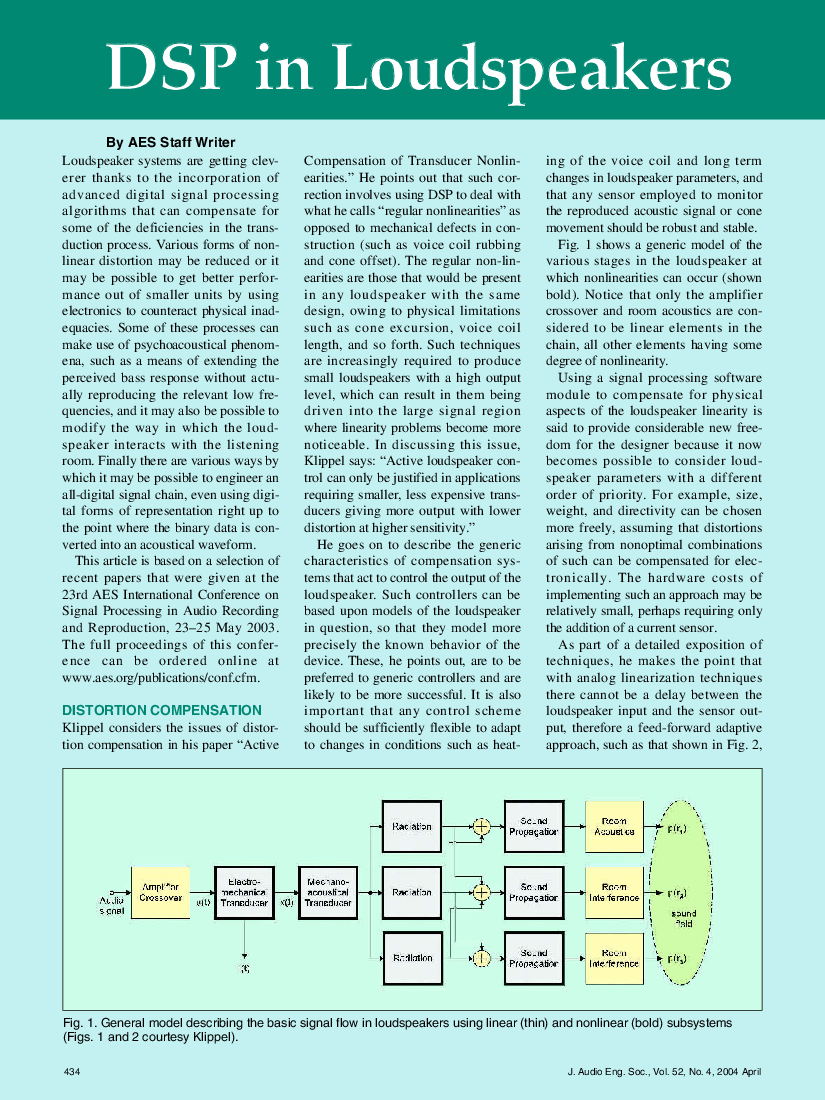Home / Publications / E-library page
You are currently logged in as an
Institutional Subscriber.
If you would like to logout,
please click on the button below.
Home / Publications / E-library page
Only AES members and Institutional Journal Subscribers can download
[feature] Loudspeaker systems are getting cleverer thanks to the incorporation of advanced digital signal processing algorithms that can compensate for some of the deficiencies in the transduction process. Various forms of nonlinear distortion may be reduced or it may be possible to get better performance out of smaller units by using electronics to counteract physical inadequacies. Some of these processes can make use of psychoacoustical phenomena, such as a means of extending the perceived bass response without actually reproducing the relevant low frequencies, and it may also be possible to modify the way in which the loudspeaker interacts with the listening room. Finally there are various ways by which it may be possible to engineer an all-digital signal chain, even using digital forms of representation right up to the point where the binary data is converted into an acoustical waveform.
Author (s): Staff, AES
Affiliation:
(See document for exact affiliation information.)
Publication Date:
2004-04-06
Import into BibTeX
Permalink: https://aes2.org/publications/elibrary-page/?id=13001
(553KB)
Click to purchase paper as a non-member or login as an AES member. If your company or school subscribes to the E-Library then switch to the institutional version. If you are not an AES member Join the AES. If you need to check your member status, login to the Member Portal.

Staff, AES; 2004; DSP in Loudspeakers [PDF]; ; Paper ; Available from: https://aes2.org/publications/elibrary-page/?id=13001
Staff, AES; DSP in Loudspeakers [PDF]; ; Paper ; 2004 Available: https://aes2.org/publications/elibrary-page/?id=13001